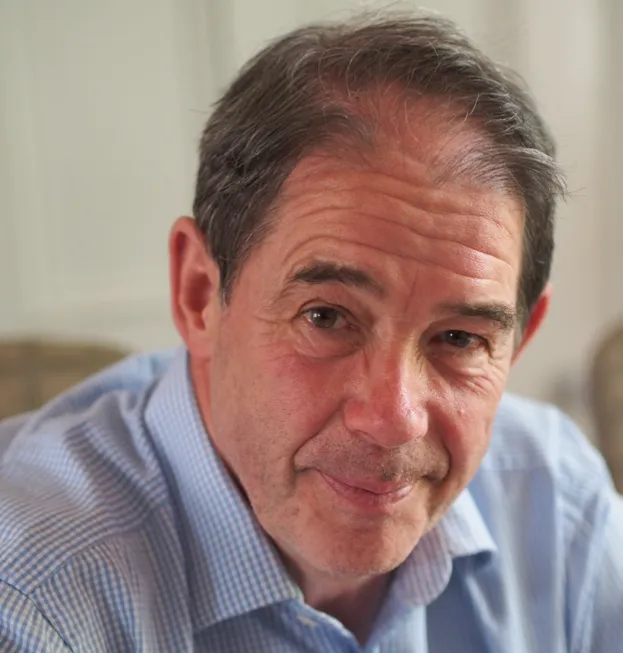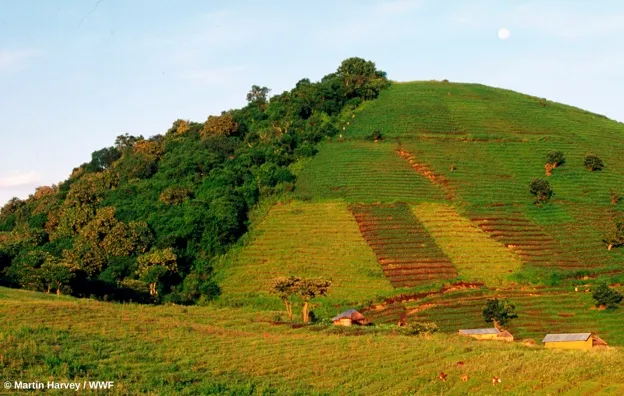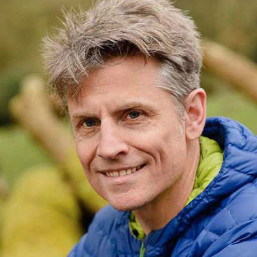He’s been described as “Britain’s most influential environmentalist” and has probably done more than anyone to make environmentalism mainstream.
Jonathon Porritt helped bring both the Green Party and Friends of the Earth into the public eye.
Now he’s turned his attention to the impact of farming and the food we eat on the world’s wildlife. And Porritt says that conservationists are not doing enough to highlight the issue.
“Over the years, I have come to the recognise that people who are passionate about conservation and the state of the planet’s biodiversity have a quite blinkered perception of what the causes might be,” he told BBC Wildlife.
“There are too few conservationists who are concerned about this, they don’t see it as part and parcel of the passion they have for the natural world.”
Porritt is due to speak at a conference, organised by Compassion in World Farming and to be held in London on 5 & 6 October, which will address this subject.

How we produce food is one of the single biggest factors driving wildlife declines both globally and in the UK. According to WWF, 60% of global biodiversity loss can be attributed to food.
It is also responsible for between 20 and 30% of all greenhouse gas emissions (estimates vary depending on how you calculate it), and the livestock sector alone is responsible for 14.5%. The production of meat is regarded by many as the biggest problem of all.
In his book Dead Zone: Where the wild things were, published this year, CIWF chief executive Philip Lymbery explains how the rearing of cattle, pigs and chickens has led to habitat loss across the planet.
About 85% of all soya beans grown in Brazil, for example, become food for livestock, Lymbery says. The EU imports 35 million tonnes of soya beans every year, and these are grown on an estimated 13 million hectares of land, an area roughly the size of Greece.
Much of this land has been converted from Amazon rainforest or another Brazilian eco-zone called cerrado, a drier, savannah-type habitat. Both rainforest and cerrado are crucial for the survival of South America’s biggest cat, the jaguar, of which there are an estimated 15,000 left in the wild – and 7,500 in Brazil alone.

“People have been trying to save endangered species and threatened habitats for decades, and in all honesty, we are not on top of this,” Porritt said. “Conservationists seem very reluctant to go to the underlying causes of this.”
But conservation groups deny they have failed to campaign on this issue. WWF pointed out that it helped set up the Marine Stewardship Council (MSC), the biggest global certifier of sustainably fished seafood, and the Roundtable on Sustainable Palm Oil (RSPO), which works with all the sectors involved in the production and use of palm oil to reduce the loss of primary rainforests.
“I’m going to blow our own trumpet,” said Duncan Williamson, food policy manager for WWF-UK. “We were the first conservation organisation to work on this [issue], with no support from the press and nothing from the industry saying we should be doing this.
“Companies wouldn’t talk to us, and we were attacked by the agricultural sector for being anti-meat and anti-farmer, while vegans attacked us for being pro-farmer. You couldn’t win.”
But WWF is neither anti-meat nor anti-farmer, he said. “We encourage people to think about the food they eat. Live well, eat more plants, eat a variety of food, waste less food and eat less meat. We don’t say eat organic or eat local – just eat more plants, they can come from anywhere. It’s deliberately simple.”
Lucy Bjorck, who works on food and farming issues for the RSPB, said they were “acutely aware” of the impact agriculture has on wildlife.
But she said campaigning on the issue didn’t always “land well” because food production appears to be so far removed from the conservation of birds, which is what the RSPB is known for.
“People can have difficulty making the connection,” she said. “They think, ‘Why is the RSPB talking to me about the soap I buy?’ It’s because it’s got palm oil in it, but they don’t always make the connection in their mind.”
Talk about reducing meat consumption also has its problems, Bjorck said. “Some of the most wildlife-friendly farmers we work with are cattle farmers,” she said, “and they feel their livelihoods are under threat from this ‘Eat less meat’ movement.”
The National Farmers Union (NFU) launched a report in 2016 calling on the Government and food industry to do more to increase consumption of vegetables.
Figures produced by the NFU showed that fruit purchases have fallen by 14% since 2007, vegetables by 5% and potatoes by 20% as more people buy “convenience food”.
Main image: Deforestation in Brazil threatens jaguars – in 2016, more than 7,000km2 of Amazon forest was lost. © Staffan Widstrand/WWF
